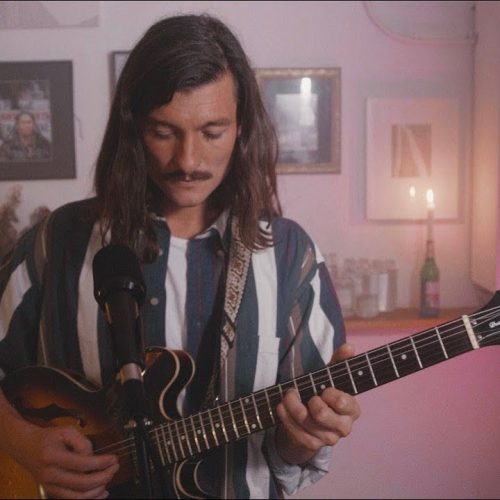Subtlety is not inherently more noble than bombast. Sure, it’s easy to shun big dumb pop hooks in favor of your favorite indie artists, and it has the added bonus of making you feel intellectually superior to people on the Internet, which is what we’re all after at the end of the day. But there’s no substitute for musical or lyrical depth, and some willowy English major murmuring poetic sweet nothings over fingerpicked guitar is not, in and of itself, deep. Subtlety and bombast are just shades of paint to be used at the discretion of the artist according to the needs of the song; Joanna Newsom interrupting a harp fantasia with a hair-metal guitar solo and Lizzo stopping her latest banger to read a selection from Leaves of Grass are equally ludicrous propositions.
With all that said, the sound of modern indie might be a little too eager to please. There’s nothing wrong with adhering to conventional forms or writing big radio-friendly hooks, but you can only listen to so many attempts at another “Midnight City” or “Skinny Love” before it all starts to bleed together. It makes it all the more heartening when you come across a song that can’t be easily slotted into a Spotify daily mix, and which wouldn’t sound comfortable soundtracking an iPhone commercial.
“The Font”, a short-yet-spellbinding chamber folk song by the Aussie-born and Berlin-based Jackson Dyer, does not fade agreeably into the background, despite its sparse instrumentation. There is an eerie calm to Dyer’s guitar arpeggios, like a pristine pond reflecting a face you don’t recognize; this is exacerbated by the strings, which churn and whine instead of
providing easy sonic prettiness. Its lyrics are about the healing splendor of a forest waterfall, but the ominous, quasi-pagan language Dyer uses to describe it (“haunting figures stood reverent”,“the ritual was complete”) makes what could have been a simple ode to nature something more mysterious.
The whole time, I waited for it to turn into a normal indie folk song. I thought that at any moment, the strings would swoon and Dyer would start to strum on his guitar and everyone would start singing “oh-whoa-oh” like an Of Monsters and Men song. But it never did; it just ends, with Dyer singing about “going under” while a violin hisses behind him. There’s no comforting denouement, no easy catharsis, nothing to ease the tension, nothing to dissolve the fog that hangs uneasily in the air.
And that’s why I like “The Font” as much as I do. It’s not perfect; Dyer’s unremarkable vocals are part of the reason why I kept expecting the song to become normal, and he does strain against his limitations somewhat. But in just over two minutes, it creates a genuinely haunting atmosphere, sustaining tension the whole time, and it has the confidence and the resolve to refuse an easy ending. Casual listeners might not be satisfied, but “The Font” doesn’t care if you’re satisfied; in a way, that’s the most satisfying part of it all.







